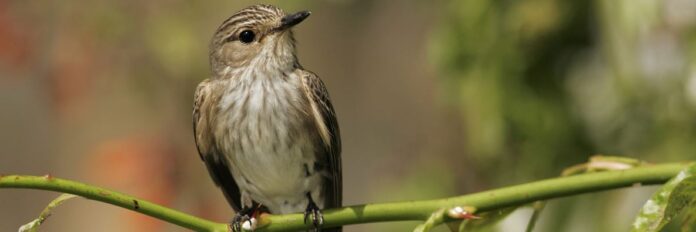The distribution and numbers of birds in the UK are changing dramatically, with many species experiencing worrying declines according to a new report.
The RSPB’s The State of the UK’s Birds 2020 (SUKB) highlights the continuing poor fortunes of the UK’s woodland birds.
The woodland bird indicator shows a long-term decline of 27% since the early 1970s, with declines of 7% evident over just the last five years. More worryingly some specialist woodland birds have declined dramatically, including willows tits, which have shown the second biggest decline of any UK bird. The breeding populations of five other species (lesser spotted woodpecker, lesser redpoll, spotted flycatcher, capercaillie and marsh tit), are now less than a quarter of what they were 50 years ago. Changes in the way our woodlands are managed are thought to be the main cause.
The UK’s endemic subspecies of willow tit is the fastest declining widespread resident species in the UK, its population having dropped by 94% since 1970 and by 33% between 2008 and 2018. The RSPB, Natural England and others have conducted research into the causes of its decline and new woodland management practices are now being trialled in an attempt to halt the decline. Due to its declining numbers, annual monitoring of this species is becoming increasingly difficult, something that prompted a targeted UK-wide survey in 2019/20 to estimate numbers.
The report also highlights new figures estimating that there are 83 million pairs of native breeding birds in the UK. Comparison with previously published figures, indicates that there are now 19 million fewer pairs of native breeding birds in the UK compared to the late 1960s. Because the numbers of some species have increased, Wren being one example, the scale of the numbers actually lost is much bigger, at some 43 million pairs overall. House sparrows have been hit the hardest and there are now 10.7 million fewer pairs than in 1966.The wren population has grown by 6.5 million pairs and is the most numerous bird in the UK.
The report does contain better news for some species. In Wales, house sparrows increased by 92% from 1995 to 2018. Across the whole of the UK, house sparrow is still the third most common breeding bird, but the millions of pairs that have disappeared since monitoring started in the late 60s puts these increases in context.
Climate change is predicted to impact UK bird populations and, for example, is behind the increases in numbers of Cetti’s warblers. However, for several large waterbirds, including great white egrets, cattle egrets, little egrets, little bitterns and spoonbills, better protection of both the birds themselves and the wetland habitats they require also appear to be contributing to the increase.
Populations of some of the UK’s rarer breeding bird species have also seen increases, some due to concerted conservation action, such as cirl buntings, stone-curlews and corncrakes. These recoveries are great examples of conservation success and a reason for optimism, nevertheless some of the species remain dependent on ongoing conservation support.
Fiona Burns, lead author of the State of the UK’s Birds 2020 said: “The UK’s birds are telling us that nature is in retreat. The continuing losses seen across many species are not sustainable and more needs to be done to stop the declines and help populations revive and recover. These findings are in line with our earlier State of Nature 2019 report which found that 41% of all UK species are declining. More action is needed if we are to tackle the nature crisis.”
David Noble, Head & Principal Ecologist, BTO said: “Volunteers play an essential role in bird monitoring in the UK, by donating their time, energy and expertise. The data they collect are vital for conservation, tracking changes and policy development. This year, many monitoring schemes have been adversely affected by the global Covid-19 pandemic and we want to say a special thank you to all of those involved for their continued support through this difficult time.”







